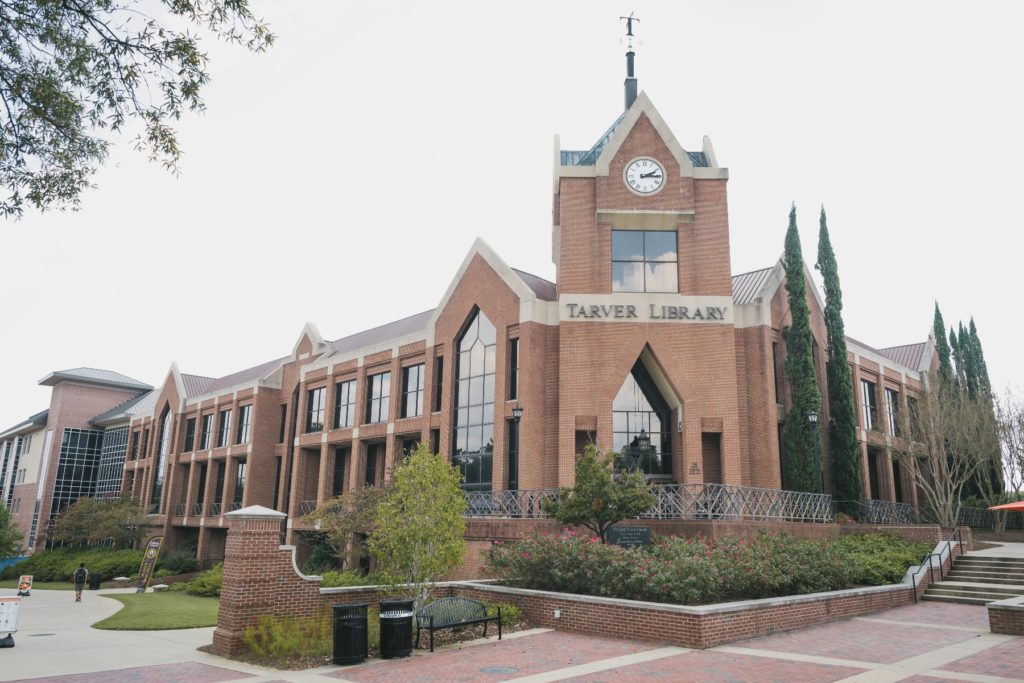Dear Kelly,
I am writing a research paper in sociology about human interaction. How can I verify that the sources I am using are factual and not just opinion?
Ah yes, research papers. They can be quite daunting, can’t they? Especially when you are truly invested in writing a remarkable paper yet worry about whether the material you are relying on is actually factual.
We live in a world where information is everywhere: television, internet, radio and social media. In this day and age, you don’t have to rely on a search engine to find information, you can just ask Alexa or Siri to tell you the answers. The question with choosing to rely on this kind of information, however, is: Can you trust it? Furthermore, is the information you’re finding backed by reputable sources, and is it worthy enough to add merit and validity to your paper?
You see, I’m a bit older than most college students. I remember spending hours in the library reading through actual encyclopedias and periodicals. I even vaguely recollect using this really cool device called microfiche to find the answers to my questions. We didn’t have computers back then, so while writing research papers took a lot longer, our reference material seemed to be more accurate and trustworthy. Even newspapers and magazines back then reported the “who, where, when and how” but seemed to do a better job of eliminating the “why” unless the “why” could be validated.
Now I can form an idea about any topic and find plenty of resources to back up my opinion. This doesn’t make it true, necessarily, but can make my opinion seem more like fact, even when it may not be.
This is the reason why it is so vital when writing a research paper to only rely on reputable sources to support the theme of your paper. When I write a research paper, I pull most of my sources from scholarly articles and journals. What makes them credible? Scholarly articles are peer reviewed, which basically means the article itself has been reviewed by other authorities in the same field of expertise. In other words, the article has been given a stamp of approval by experts who have studied that same subject before the article was released to the public.
The awesome thing about relying on peer-reviewed or scholarly material is that you don’t have to worry about its validity, and it is simple to locate if you know what to look for. Of course, you can search through a search engine, like Google Scholar, but you may run into a plethora of research summaries that require you to pay for access. That is why I choose to rely on our very own Mercer University Libraries online.
You can access the Mercer Libraries website by going to libraries.mercer.edu. Then, in the search bar on the main page, you can search your topic. Once your results are displayed, you can refine those results on the left side of the screen by clicking “peer-reviewed” and other options to narrow your results even further, including the type and date of the publication among many other choices. If you get stuck or have questions, the Mercer Libraries website offers you the opportunity to speak to a librarian either through Zoom, email or phone.
You may ask, “What about newspapers and magazines? Are they reputable resources?” The simple answer is, “Sometimes.” All too often, opinions can get mixed into reporting. When I refer to a news-related article, I try to make sure that the article is reporting the event as it happened, not trying to interpret the “why” of what happened. The term “spin” refers to reporters inserting their opinion, or interpretation of events, into a story, rather than just reporting who, what, when, where or how the event took place. That’s why it’s important when referencing a news report to find three different sources for one single news event and only use the information that is repeated in each source. Resist using information that appears to be opinion; in other words, stick to the facts.
When generally searching the internet for information to support your research topic, it is also important to be familiar with domain suffixes and what they mean. These suffixes — for example, .com, .gov, .org — actually have a purpose and are directed toward a particular audience. For instance, websites ending in “.com,” are commercial sites and are paid for, which may mean they do not have reliable information. Websites ending with “.org” are generally not-for-profit organizations, and while their information may be more reputable, the information may promote a particular viewpoint or belief about their cause. Knowing what these suffixes mean can help you determine if the site has trustworthy and validated information. Find out more about website suffixes.
Finally, I often hear from other classmates, “Why can’t I just use sites like Wikipedia? They list several references at the bottom of each topic. Doesn’t that make it trustworthy?” The honest answer is, “No.” Wikipedia, as explained on its website, is “written collaboratively by largely anonymous volunteers who write without pay. Anyone with internet access can write and make changes to Wikipedia articles, except in limited cases where editing is restricted to prevent disruption or vandalism.” This means, in a nutshell, that a person can have an understanding of a particular topic (whether correct or incorrect) and can contribute their understanding on the website. There is even a disclaimer on Wikipedia’s About page that reads, “Because anyone can click ‘edit’ at any time and add content, any article may contain undetected misinformation, errors, or vandalism.” In addition, Wikipedia warns users about relying on its information while doing research.
Allow me to give this piece of advice, something I have learned throughout my journey as a college student: When you are assigned a research paper, start collecting sources early and save them to a folder on your computer. As your collection of resources begins to build, really begin to scrutinize these sources. Do they appear reputable? Why do you believe they are reputable? Can you validate that they have been reviewed by experts? Does the source you are using look like a blog post, or does it contain research data and specific information?
Finally, and this is the litmus test I always use to determine if I should use a particular resource, say to yourself, “If my professor was standing right here and I said that I intend to base my paper on the information found in this source, would they approve or would they recommend I look elsewhere?” That answer, alone, can help you weed out the sources you need to stay away from.
My best advice is that when you’re not sure, rely on the peer-reviewed articles found at the Mercer Libraries, and if you still have questions, write your professor and ask for help. They are there to guide you through the process, and they want to see you succeed.
Good luck to you! As always, I wish you health, happiness and continued success throughout your journey!
Do you have a question about distance learning or coping with school in these challenging times? Each week Kelly Browning, an early childhood education/special education major and student ambassador at the Henry County Regional Academic Center, answers questions from the Mercer community. Email her at kelly.l.browning@live.mercer.edu or fill out our online form to submit your question anonymously.











